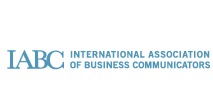 Give to get back
Give to get back
I try to give back to the communications industry by offering to speak at meetups, barcamps, schools, industry conferences and other gatherings that want me. Usually, I’ll speak about about social media, sharing what I’ve experienced and learned over the past five years.
I’ve never delivered the same presentation two times in a row. Social media changes so rapidly and there are so many new developments and issues that I’m constantly adding new material.
Don’t waste their time. Make it relevant
When I plan a presentation, I always try to approach the presentation from the perspective of the participants. What is their background? What interests them? What do they already know? What could I offer them that would make their hour with me a worthwhile use of their time?
Usually this approach works. I deliver what people are interested in. And they think their time with me was well spent. Occasionally, I miss the mark.
In the past few years, I’ve become active in the Canadian Council of Public Relations Firms (In fact, I was elected Chair of the CCPRF in December.) And one of the topics of ongoing discussion among the PR consulting firm CEOs has been the need to ensure that new employees arrive in our firms with the knowledge and skills necessary for success in the era of social media.
Oops. This one didn’t make the cut.
So, when the Canadian Public Relations Society put out a call for presentation proposals for the CPRS National Conference scheduled for June in Vancouver, I thought that it would make sense to propose a session with a panel of CEOs of some of Canada’s leading PR firms talking about the knowledge and skills they believe that people should be acquiring in order to succeed in our evolving industry. The CEOs of three other firms – Palette PR‘s Martin Waxman, Weber Shandwick‘s Kerry Harris and Argyle‘s Dan Tisch – volunteered to participate in this panel. So, I thought I’d have a rock solid session that would be of interest to the members of the CPRS.
Oops. I was wrong. I received an email telling me that our submission had been declined. Clearly, I’d missed the mark with this proposal.
Fair enough. The conference organizers want to put on the best conference and I’m sure that they had many great presentations to choose from.
Doing better the next time
But, of course, I’d like my presentation proposal to be among the better ones. So, if I missed the mark this time, I’d like to improve for the next time. And I’m hoping that you can help me with that.
I’ve reproduced the presentation proposal below. If you are a public relations practitioner, please take a look at it and tell me how I could tweak it to make it something you’d find useful.
I can’t offer you anything other than my thanks. And my pledge not to waste your time if you find yourself at one of my presentations.
Building your Career with Canada’s PR Consulting Companies
What do the leaders of public relations firms look for in recruiting new employees and deciding who to advance? It’s about more than billings. In this era of social media, what are the skills that PR pros must acquire or develop in order to build a successful PR consulting career? Four PR firm CEOs, Thornley Fallis’ Joseph Thornley, Palette PR’s Martin Waxman, Argyle’s Dan Tisch and Weber Shandwick’s Kerry Harris, will tell you what they look for and answer all your questions. This panel is co-sponsored by the Council of Public Relations Firms and the CPRS.Anyone interested in a career in PR consulting, whether PR student, new job entrant, mid career or senior practitioner, will be interested in this session.
The objectives of this workshop are to alert CPRS members to how they can prepare themselves to succeed in today’s fast changing public relations discipline and to give them insight into how PR firms are trying to help them prepare for the future.
Participants will learn:
- What PR consulting firms look for when recruiting new employees;
- What skills and expertise PR practitioners should be developing to equip themselves to succeed today and tomorrow;
- How PR agency heads are trying to help their employees acquire new skills and expertise that they will need to advance in their careers.
PR professionals will gain insight into what PR firm heads feel are the essential skills and expertise of tomorrow and how they can acquire this.
PR consulting companies will benefit by the exchange of best practices and corporate communicators will gain insight into the challenges facing their suppliers and what is being done to meet those challenges.
So, what do you think?
How could I improve this session proposal to make it more interesting and more useful to public relations practitioners and other conference attendees?


